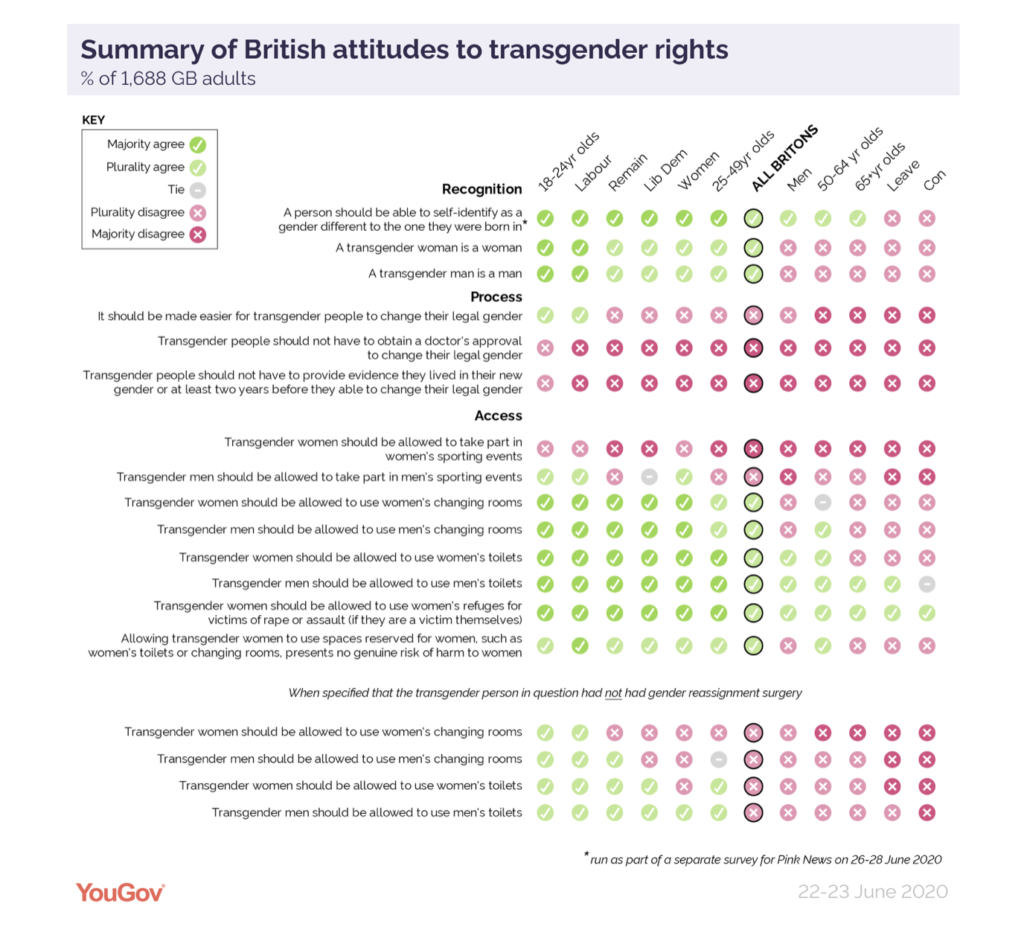2020 Attitudes About Transgendered Peoples’ Access to Restrooms, Sports Competition and More
To what extent should transgendered people should have access to restrooms? To what extent should they be allowed to participate in sports? Why guess. Here are YouGov's survey results from the UK:


